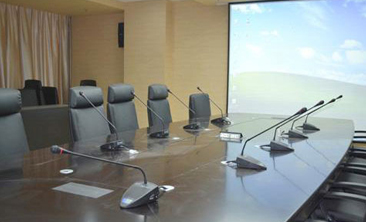
ElMicrófono de Conferencia La colocación en las habitaciones generalmente se divide en la colocación del escritorio y la colocación del estante del micrófono. Al poner elMicrófono de ConferenciaEn el escritorio, debemos prestar atención al ángulo y el intervalo entre la boca del altavoz y el micrófono. La mejor manera es alinear el eje medio del micrófono con la boca del altavoz. En este momento, el micrófono tiene las mejores características de respuesta de frecuencia. Cuanto más vaya la boca contra el eje medio, peor serán las características de respuesta de frecuencia, más grave será la pérdida de agudos y se reducirá el voltaje de salida del micrófono. Por lo general, una forma de corazónMicrófono de Conferencia, El ángulo entre la boca y el eje central está dentro de 450 escala.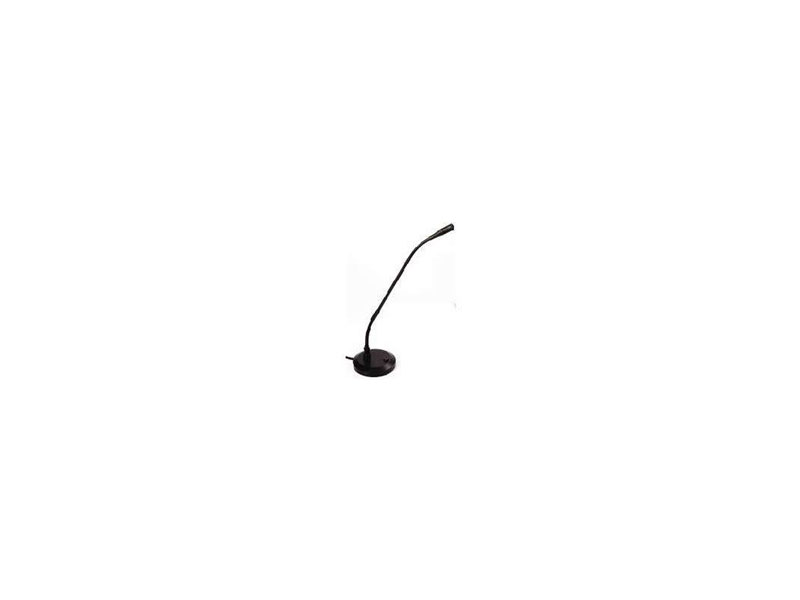
Cuando se habla en una sala de conferencias, para mejorar la claridad del habla, El micrófono debe estar a 20-30 cm de distancia de la boca. Si está demasiado cerca, es fácil presentar un acento de chorro de baja frecuencia, que afecta a la claridad del sonido. Si está demasiado lejos, el micrófono capta demasiados reflejos y reverberaciones, que fácilmente pueden provocar gritos. En este momento, si el mezclador es demasiado pequeño, el volumen no puede satisfacer las necesidades, la audiencia no puede escuchar el contenido del discurso, empujando demasiado grande y fácil de gritar. Por lo tanto, es muy importante estimar con precisión el intervalo de voz del hablante al colocar el micrófono en su lugar.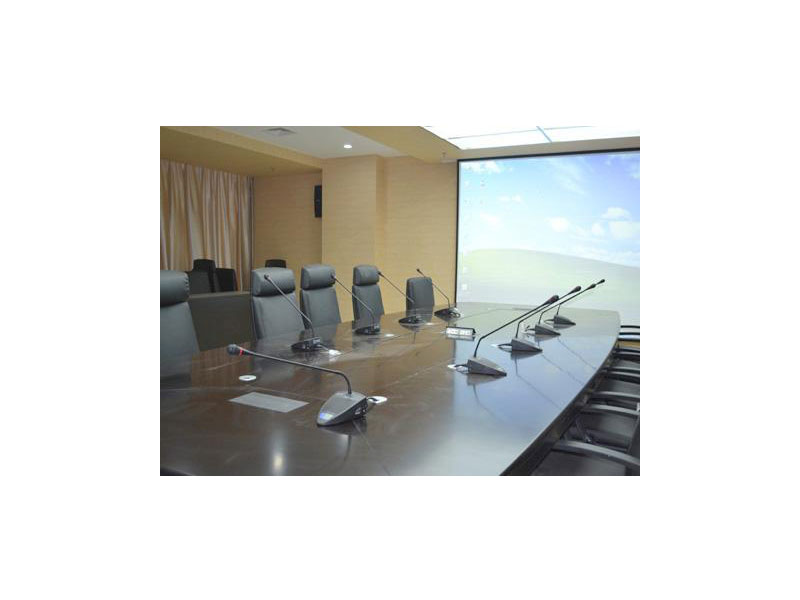
Cuando varios altavoces necesitan colocar varios micrófonos, el intervalo entre micrófonos debe ser tres veces mayor que el intervalo entre fuentes de sonido y micrófonos (p. Ej. Cumplir con el criterio de 3:1), para reducir la interferencia de fase cuando se agregan señales.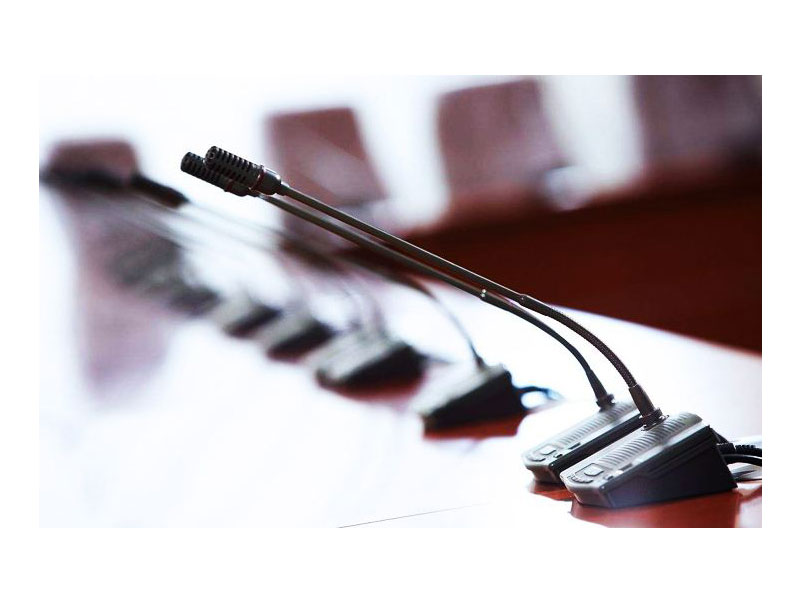
Cuando una persona habla y necesita captar sonido con dos o más micrófonos (por ejemplo, para la presentación), mantenga dos o más micrófonos lo más cerca posible. El intervalo entre cada micrófono y la fuente de sonido (boca del altavoz) debe ser lo más plano posible para evitar la interferencia de fase cuando se agregan señales. En este momento, deberíamos prestar más atención a la consistencia de la fase del micrófono. Tomemos como ejemplo dos micrófonos. Si dos micrófonos aún no han captado un gran volumen, se clarifica la fase inversa de dos micrófonos. En este punto, es necesario ajustar la fase de un micrófono. Por lo general, el problema radica en la línea del micrófono, siempre que se ajuste el cableado de un micrófono. Cuando se coloca el soporte del micrófono, debido a que muchos soportes del micrófono son soportes triangulares, la proyección del centro de gravedad del micrófono debe colocarse en uno de los soportes después de instalar el micrófono. Además, el poste móvil del micrófono no debe tirarse demasiado para evitar que el centro de gravedad del micrófono se vuelque más allá de la escala del soporte.
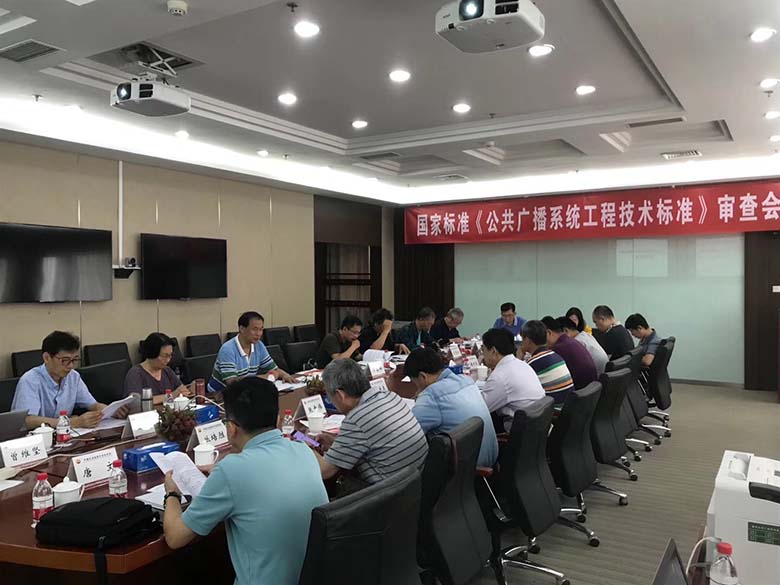 La Reunión Nacional de aprobación estándar celebrada en BeijingJuly 19, 2019La Reunión Nacional de Aprobación Estándar celebrada en Beijing La Reunión de aprobación del Estándar Técnico Nacional de ingeniería de sistemas de megafonía se celebró en Beijing el 16 de julio de 2019. Xue Chang...view
La Reunión Nacional de aprobación estándar celebrada en BeijingJuly 19, 2019La Reunión Nacional de Aprobación Estándar celebrada en Beijing La Reunión de aprobación del Estándar Técnico Nacional de ingeniería de sistemas de megafonía se celebró en Beijing el 16 de julio de 2019. Xue Chang...view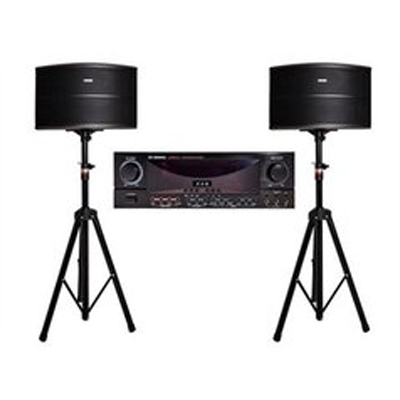 Conducción de sonido hacia adelante: los avances en la tecnología de amplificador PA profesionalJuly 6, 2023En el mundo del audio, los amplificadores de PA profesionales desempeñan un papel crucial en la entrega de un refuerzo de sonido potente y claro. Estos amplificadores han recorrido un largo camino en términos de avances tecnológicos...view
Conducción de sonido hacia adelante: los avances en la tecnología de amplificador PA profesionalJuly 6, 2023En el mundo del audio, los amplificadores de PA profesionales desempeñan un papel crucial en la entrega de un refuerzo de sonido potente y claro. Estos amplificadores han recorrido un largo camino en términos de avances tecnológicos...view

